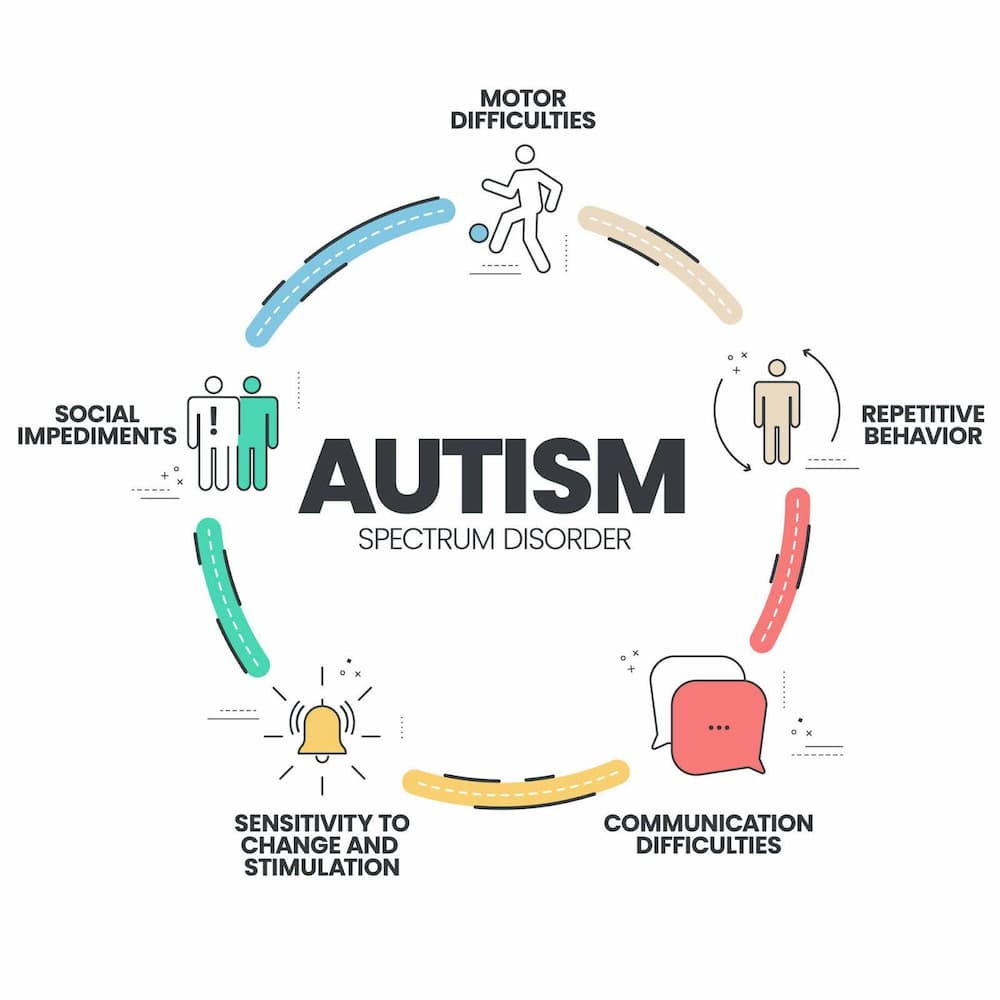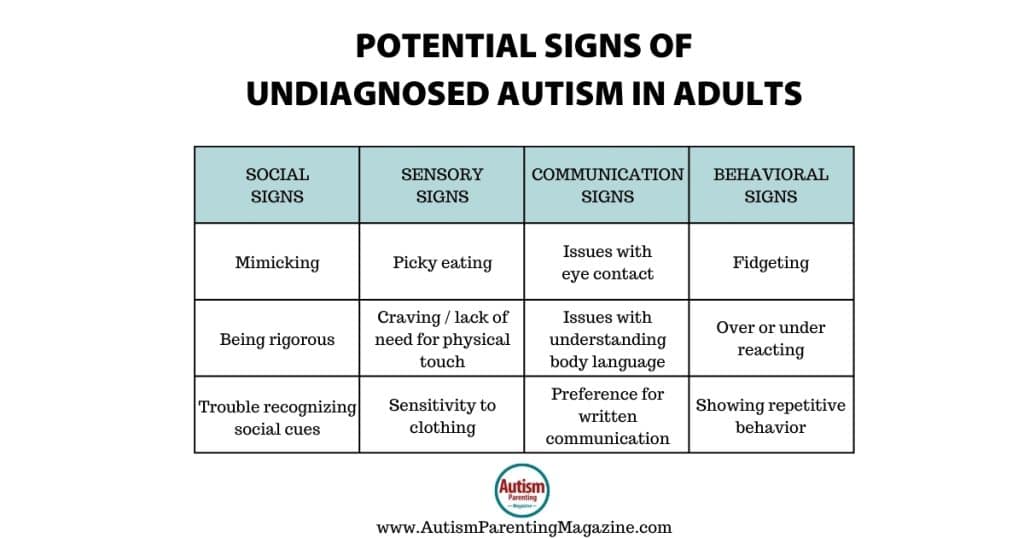Coping with hypersensory challenges with support from Autism Spectrum Therapies professionals
Coping with hypersensory challenges with support from Autism Spectrum Therapies professionals
Blog Article
Secret Indications and Symptoms to Acknowledge in People With Behavior Autism
When you run into someone with behavioral autism, recognizing vital signs and signs is vital. You could observe difficulties in social communications and communication, along with a solid need for routines. In addition, sensory sensitivities can result in frustrating experiences. Recognizing these characteristics can improve your assistance and treatments, yet there's more to uncover concerning exactly how these actions show up in everyday situations. Let's discover what these indications really resemble.
Difficulties in Social Communications
When you engage with someone on the autism spectrum, you might discover they have a hard time with social signs and interaction. These obstacles can make social communications really feel frustrating for them.
In addition, you might discover that they choose regimens and acquainted setups, which can limit their determination to take part in brand-new social scenarios. They might speak regarding their interests in fantastic information without discovering if you're interested when they do engage. This can cause one-sided discussions that leave you really feeling detached. Recognizing these challenges can help you come close to interactions with compassion and perseverance, fostering a much more comfy setting for both of you.
Problem With Verbal and Non-Verbal Communication

Non-verbal communication can be much more tough. You may see an absence of eye get in touch with or limited usage of gestures, which can make communications really feel uncomfortable. Facial expressions might not always line up with the conversation, bring about confusion about their feelings. Acknowledging these indicators is important, as it helps you better assistance and engage with individuals on the autism range. By understanding their interaction difficulties, you can cultivate more purposeful connections and offer an extra supportive atmosphere.
Repeated Actions and Regimens
Interaction challenges commonly come with various other signs of autism, such as repeated habits and a solid choice for regimens. You could see that individuals with autism typically involve in certain, repetitive activities, like hand-flapping, shaking, or duplicating expressions. These actions can provide comfort and a sense of control in a typically frustrating globe.
Regimens are similarly crucial; several people grow when they adhere to an organized timetable. You may find that changes to these routines can result in significant distress. For instance, if they have a day-to-day ritual of eating breakfast at a specific time or following a particular course to institution, any type of interruption can cause anxiety.
Identifying these patterns assists you understand their actions and supply support. By accommodating their demand for routine and allowing recurring actions, you can develop a much more comfortable setting that alleviates their challenges.
Sensory Level Of Sensitivities

Common Sensory Triggers
Sensory level of sensitivities can substantially impact life for individuals with autism, as specific stimuli often activate frustrating reactions. Common sensory triggers include loud sounds, intense lights, and strong smells. You could notice that unexpected noises, like alarms or sirens, trigger anxiousness or distress. Fluorescent illumination in shops can really feel uneasy and extreme. Appearances can also play a significant role; rough materials or specific food structures might be excruciating for you. In addition, crowded areas can bewilder your detects, making it tough to relax or focus. Understanding site these triggers can help you manage your environment better. By recognizing what affects you, you can take steps to minimize pain and boost your day-to-day experiences.
Behavior Reactions Discussed
Comprehending your behavior reactions to sensory level of sensitivities is important, as they usually expose just how you interact with the world. You might also discover on your own seeking certain sensory experiences, like deep stress or quiet settings, to help ground on your own. Identifying these patterns helps you comprehend your needs better and can assist exactly how you communicate them to others.
Coping Techniques Introduction
Identifying your sensory level of sensitivities is simply the very first step; now it's time to explore coping strategies that can aid you take care of those experiences effectively. Start by creating a sensory toolkit tailored to your demands. Developing an organized regimen can additionally give find here predictability, lowering anxiousness around sensory overload.
Limited Passions and Emphasis
While several people create a wide range of rate of interests, those with autism usually show restricted rate of interests and an intense concentrate on particular topics. You might see that someone with autism can spend hours diving right into their favorite topic, whether it's a specific kind of train, a specific flick, or a scientific principle. This intense emphasis isn't just a leisure activity; it can end up being a central component of their identity and social interactions.
You may discover that conversations rotate around these interests, and they might struggle to participate in more comprehensive topics. For them, these concentrated interests give comfort and a feeling of mastery. While it is essential to motivate expedition of new topics, respecting their enthusiasms is just as vital. By understanding and recognizing these restricted rate of interests, you can foster a helpful environment where they feel valued and recognized, enabling more significant links and interactions.
Emotional Guideline Problems
Individuals with autism frequently face challenges in emotional regulation, which can be affected by their extreme emphasis on certain rate of interests. You may observe that when an individual is deeply taken part in a preferred task, they can experience solid emotions, whether excitement or aggravation. When points do not go as planned., this strength often makes it difficult for them to shift equipments or manage their sensations - Autism Therapist.

Variability in Developmental Turning Points
When it concerns developmental landmarks, you'll see that individuals with autism commonly reveal a vast array of variability. Some might strike landmarks on schedule, while others may drag or progression read this post here at a different rate. You could see a child stand out in language skills however struggle with social interactions. This variance can be complex, as traditional benchmarks don't always apply.
It's vital to acknowledge that each individual's journey is unique. Some might develop complicated abilities early, just to face challenges later on. Others could take longer to attain fundamental turning points but after that prosper in particular areas. Observing these patterns can assist you understand their staminas and needs better.
Regularly Asked Concerns
Exactly How Is Autism Identified in Kid and Adults?
To diagnose autism in adults and kids, professionals evaluate habits, communication abilities, and social interactions. If a specific fulfills the requirements for autism spectrum condition., they frequently make use of standardized examinations, interviews, and monitorings to figure out.
Are There Various Types of Autism Range Disorders?
Yes, there are different kinds of autism range conditions, including Asperger's disorder and pervasive developing disorder-not or else specified. Each type differs in intensity and qualities, so recognizing these distinctions can aid you much better assistance individuals with autism.
What Treatments Are Reliable for Individuals With Autism?
When considering reliable therapies for people with autism, you'll locate options like Applied Habits Evaluation, speech treatment, and work treatment. Each strategy can help enhance interaction, social abilities, and daily working customized to specific needs.
Can Individuals With Autism Lead Independent Lives?
Yes, people with autism can lead independent lives. With the right support, abilities training, and resources, you can aid them establish self-sufficiency, handle everyday jobs, and grow in various atmospheres, promoting their freedom.
Just How Can Households Assistance Liked Ones With Autism?
You can sustain your enjoyed ones with autism by developing an organized environment, encouraging their interests, practicing patience, fostering communication, and promoting social skills. Celebrate their achievements, no matter how small, and build a supportive community.
Although numerous individuals on the autism spectrum can understand and use language, they typically deal with considerable challenges with both non-verbal and verbal interaction. Identifying these indicators is necessary, as it assists you much better support and engage with individuals on the autism range. You could see that people with autism commonly engage in particular, repeated activities, like hand-flapping, shaking, or duplicating phrases.Sensory sensitivities can significantly influence everyday life for people with autism, as particular stimulations commonly activate frustrating responses.When it comes to developmental turning points, you'll discover that individuals with autism frequently show a large range of irregularity.
Report this page